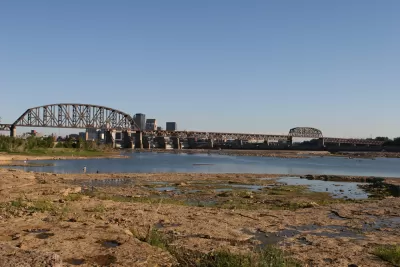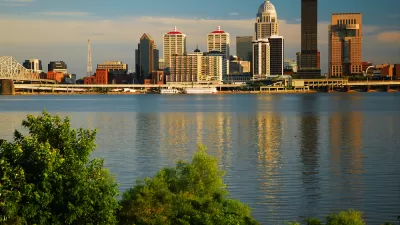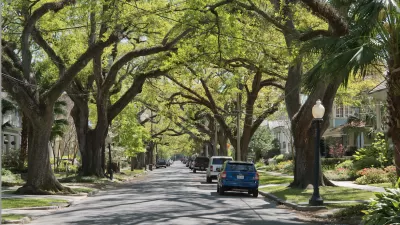Louisville has the ignominious distinction of having the largest heat island effect of any of the largest cities in the United States. A new study from the Urban Climate Lab at Georgia Tech suggests ideas for lowering the heat in the city.

"Mayor Greg Fischer launched a "Cool502" effort on Monday to fight the city's documented problem with urban heat," reports James Bruggers. The mayor's announcement responded to a new study from Georgia Tech about the many negative effects of Louisville's heat problem.
In releasing the city's first heat management report [pdf], which provides neighborhood-by-neighborhood guidance, the mayor called on residents and business owners to take steps to improve the livability of Louisville by reducing heat.
Bruggers also wrote a second article published today, focusing more specifically on the new study that inspired the mayor's announcement. The report also details the benefits the city could achieve by taking steps to alleviate the problem. The same researchers released a report in 2013 finding that Louisville had the most intense heat island effect of any large city in the United States.
FULL STORY: Fischer launches 'Cool502' to fight urban heat

Trump Administration Could Effectively End Housing Voucher Program
Federal officials are eyeing major cuts to the Section 8 program that helps millions of low-income households pay rent.

Planetizen Federal Action Tracker
A weekly monitor of how Trump’s orders and actions are impacting planners and planning in America.

The 120 Year Old Tiny Home Villages That Sheltered San Francisco’s Earthquake Refugees
More than a century ago, San Francisco mobilized to house thousands of residents displaced by the 1906 earthquake. Could their strategy offer a model for the present?

HSR Reaches Key Settlement in Northern California City
The state’s high-speed rail authority reached an agreement with Millbrae, a key city on the train’s proposed route to San Francisco.

Washington State Legislature Passes Parking Reform Bill
A bill that would limit parking requirements for new developments is headed to the governor’s desk.

Missouri Law Would Ban Protections for Housing Voucher Users
A state law seeks to overturn source-of-income discrimination bans passed by several Missouri cities.
Urban Design for Planners 1: Software Tools
This six-course series explores essential urban design concepts using open source software and equips planners with the tools they need to participate fully in the urban design process.
Planning for Universal Design
Learn the tools for implementing Universal Design in planning regulations.
Ada County Highway District
Clanton & Associates, Inc.
Jessamine County Fiscal Court
Institute for Housing and Urban Development Studies (IHS)
City of Grandview
Harvard GSD Executive Education
Toledo-Lucas County Plan Commissions
Salt Lake City
NYU Wagner Graduate School of Public Service





























